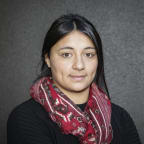Closed adoption saw thousands of Māori babies handed over to Pākehā families with no way of accessing their ancestral roots. Te Aniwa Hurihanganui looks at the outdated Adoption Act and its impact on Māori who grew up desperate to reconnect.
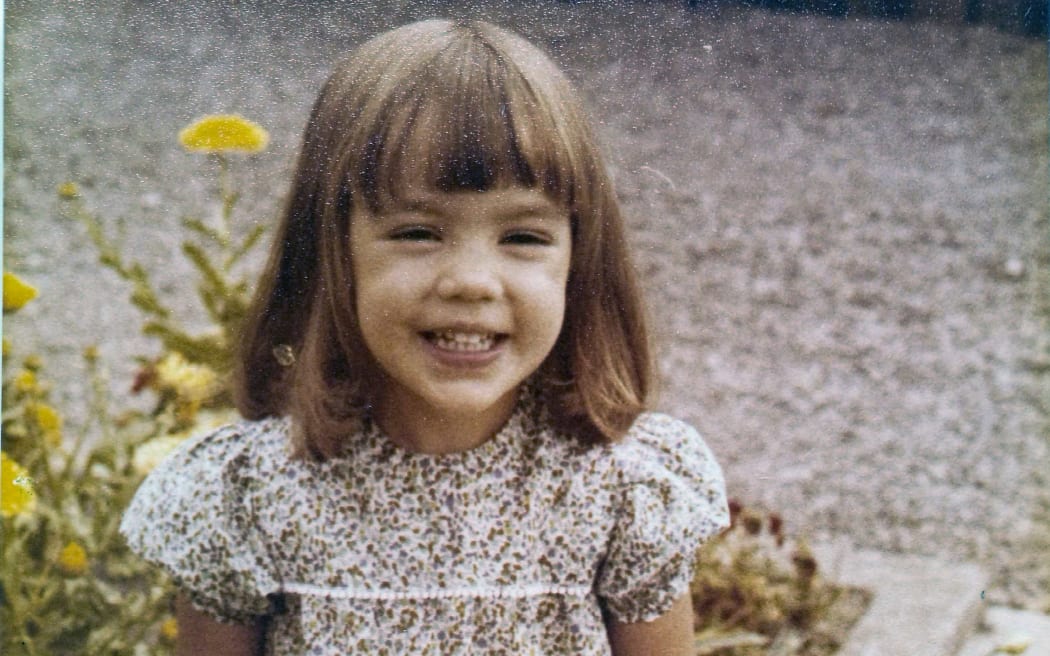
Annabel Ahuriri-Driscoll was adopted as a baby into a Pākehā family Photo: Supplied
Nicola Lancaster remembers holding Annabel's tiny premature body in her arms moments after she was born in 1976. This was her first child and she had carried her through a tumultuous seven months. Without the support of Annabel's father, David, who was the eldest of three Māori boys and planned to join the navy, Nicola knew she was on her own. She was also 17, and the shame and stigma of falling pregnant out of wedlock was palpable.
"There was always peer pressure and social pressure [to adopt]. I'd known a couple of girls who had got pregnant but they had got married, and that wasn't an option for me," she says. "There was no real support systems for solo parents; well there were, but it was kind of frowned upon in those days."
In the neonatal unit at Christchurch Women's Hospital, other new mothers and their families celebrate. For Lancaster, it was so different: nearly as quickly as her baby was delivered and placed into her arms, she was gone again. The baby was taken to Karitane Hospital to be cared for while she waited for an adoptive family. Lancaster stayed in hospital recovering and dwelling on her decision to adopt. She wondered if she'd ever see Annabel again.
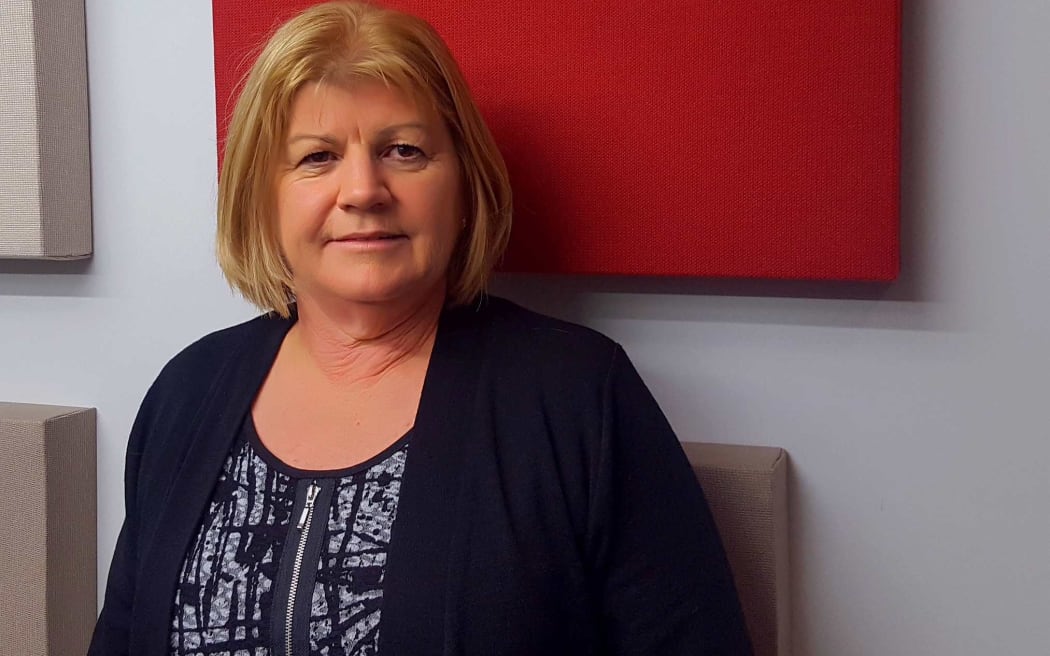
Nicola Lancaster had no idea who adopted her baby daughter Photo: RNZ
"It was completely closed and they don't give you any information. I remember after the birth I bought some clothes and I took them to social welfare, but I don't know whether they were ever passed on. No contact was allowed, and I had no idea who had adopted her."
This was the reality of so-called "closed-stranger adoption" in New Zealand, where children were taken in by parents with no connection to the birth family and all contact with the birth parents during childhood was severed. For thousands of Māori babies, like Annabel, the impact of cutting those ties was profound. Without access to her birth certificate, the vital links connecting Annabel to her whakapapa, or genealogy, were lost.
Lost in a new family
Closed adoption in New Zealand was at its peak between 1955 and 1985. About 45,000 adoptions took place during this period, and while exact figures are not known, a large proportion of them were Māori babies adopted by Pākehā families.
Until new separate legislation came into force in 1985, the 1955 Adoption Act prevented birth parents, and their relinquished child, from getting access to information about the other.
Professor Maria Haenga-Collins, from the Auckland University of Technology, has completed a master's thesis about the experience of Māori adults who were adopted into Pākehā families as children, by way of closed stranger adoption. Most participants in her study described growing up 'disconnected', she says. "One of the consistent themes in both my masters and doctoral research is around walking between worlds and not feeling grounded in either world. One of my interview participants had stated she felt that she was too white to be Māori in the Māori world, and too Māori to be white in the white world.
"Māori will say, where are you from? Who are you related to? What's your family name? That's how we connect. If you can't do that, a lot of the participants I met felt great shame and felt really invisible as Māori."
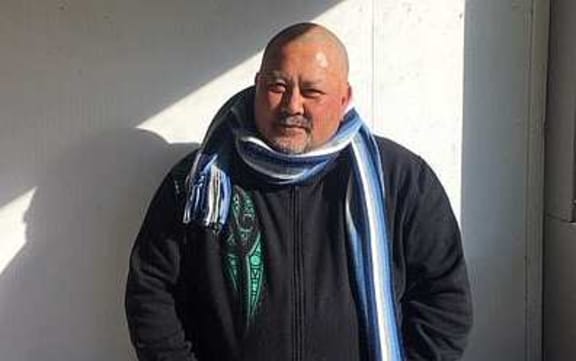
Mike Kawana a kaumatua from Wairarapa says Māori are unique in that our whakapapa traces us back to the beginning of time Photo: RNZ / Te Aniwa Hurihanganui
"When you look at the different cultures around and the way that they are able to show who they are, where they're from and how they connect to things, Māori are quite unique in that our whakapapa traces us right back to the beginning of time, [and] right back to when all things were created.
"When we say 'ko Rangitūmau te maunga, ko Ruamāhanga te awa', it's not just us wanting to acknowledge our mountain and acknowledge our river. There's a connection there, always has been and always will be, and that's because of whakapapa."
Insight is on Apple Podcasts: subscribe and give us a review - Or head to Spotify or wherever you get your podcasts
‘It was like a physical pain’
Annabel Ahuriri-Driscoll is no longer that premature baby who was born in Christchurch Women’sHospital. She still lives in Christchurch, but considers Tokoroa a second home, because that’s where her Nan Marlene, Aunty Marina and Uncle Micky live, in a house just outside of town.
Ahuriri-Driscoll didn’t meet her Ahuriri whānau until she was in her teens. It was exactly 24 years ago, and Nan Marlene remembers it well. "Annabel didn't even have any hair then," she says. "But gee she was still beautiful. Very polite and very interested, but what I did feel in her was a Māori side coming through.
"She was interested in where my family came from and a lot about koro and where his family came from, Ngāti Porou. That stuck out to me, that she had this inbred in her, her whakapapa. She was wanting [and] she had a hunger for it."
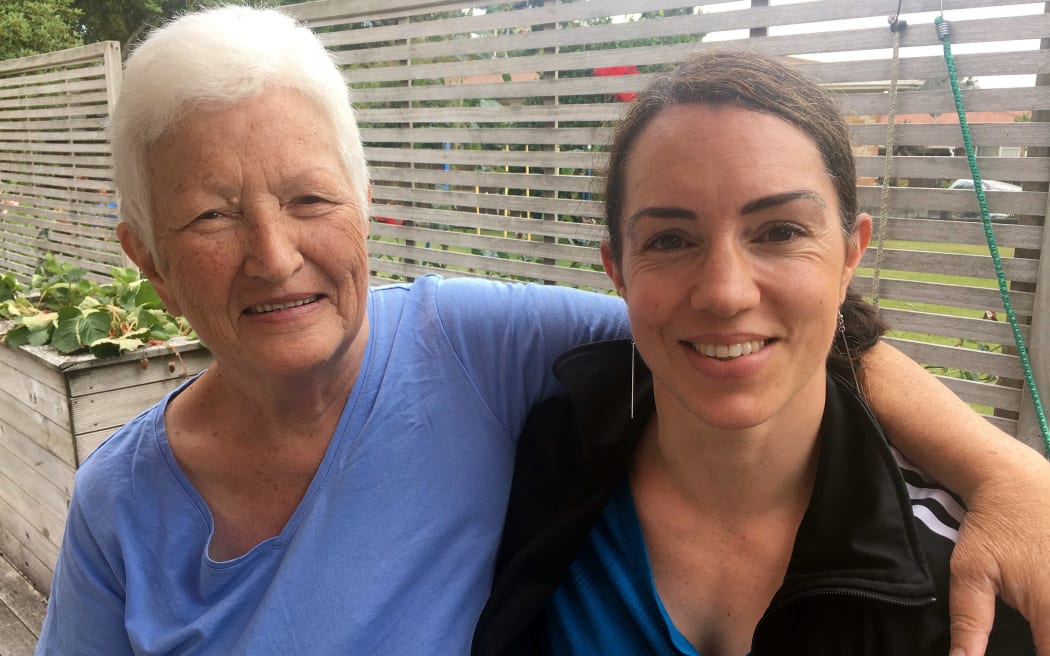
Annabel and Nan Marlene Photo: RNZ / Te Aniwa Hurihanganui
That hunger grew, but Nan Marlene would later find out Ahuriri-Driscoll’s thirst to know more about her Māori identity began many years earlier.
Ahuriri-Driscoll was adopted into the Driscoll family in 1976, 12 weeks after she was born. Lynda and Peter Driscoll, who couldn't have children of their own at that time, had been approved by social welfare to be her adoptive parents.
"Most amazing day of my life. Fell in love with her straight away," says Lynda. "We knew she was born in Christchurch, we knew her mother was in Christchurch and father at that time, [but] there were no names given to us.
"They didn't give us exacts but they said she was a part-Māori baby. That's probably about it really."
Though Lynda had limited knowledge about where Ahuriri-Driscoll came from, she has always been open about her adoption. But Ahuriri-Driscoll’s curiosity to know more - particularly about her taha Māori - her Māori side - continued to grow, especially in her teenage years. "My adoptive family didn't encourage me learning te reo, I really wanted to, but they said it doesn't count [and] you're not Māori enough. They had a fraction that social welfare had given them and decided that actually you're not really Māori.
"I certainly always knew I was loved, and I had everything I needed, but just that misunderstanding of who I am. That was my feeling growing up, I really didn't quite fit. It was sort of like a physical pain, actually, of just not knowing and particularly not knowing whakapapa."
Am I Māori at all?
Paul Eagle, the MP for Rongotai, understands. He can see many of the Wellington landmarks he grew up around from his parliamentary office in Bowen House. "I actually worked at the top of this road, Molesworth Street, at Police National Headquarters." The city is his home, but his life didn't begin in the capital. He too was adopted into a Pākeha family shortly after he was born, and spent some of his childhood in Christchurch before moving to Wellington. He got his last name - Eagle - from his adoptive parents, Brian and Judith, who still remember picking him up at a foster home in West Auckland in 1972, and taking him home to Tokoroa, where they lived for a short time.
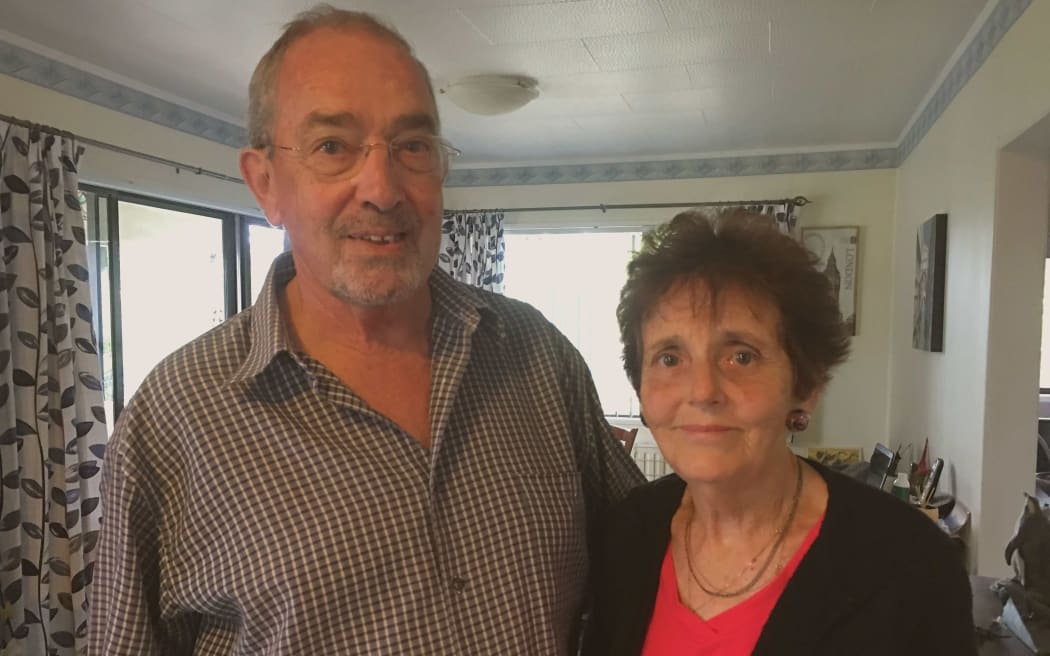
Brian and Judith Eagle Photo: RNZ / Te Aniwa Hurihanganui
"We went over to the house where he was being held. An older woman, she brought Paul out for us, and we took him, basically," Judith says. "Social welfare gave you a form with his colour, his parents' colour of skin, and that was it really. You weren't allowed to get any information until they turned 21."
Looking at old photos of Paul, Brian cracks a smile. "As a young pre-schooler he could go around and turn on taps that [Judith] had turned off as hard as she could."
Brian and Judith wanted a big family. They adopted another Māori child, Rua, and had two biological children of their own. In an effort to connect Paul with his Māori identity, they enrolled him and his three siblings at Wellington High School's bilingual unit - an environment steeped in tikanga Māori, and a place where teachers spoke te reo in most lessons.
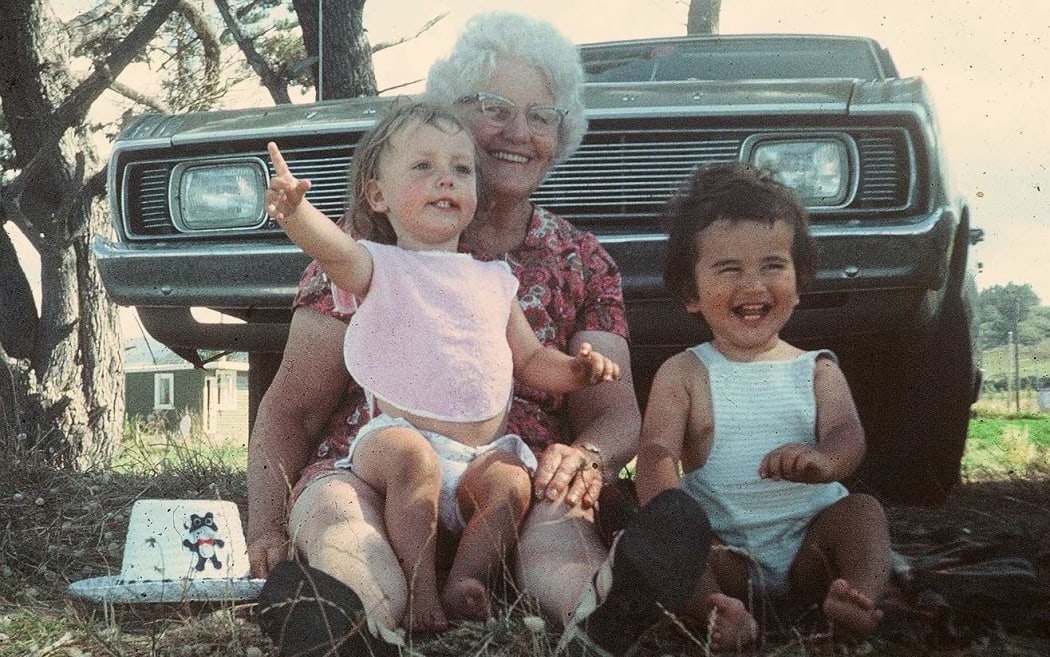
Paul Eagle with his adopted family Photo: Supplied
But those years in the bilingual unit turned out to be some of the toughest of Paul's life. It was there he was forced to confront a painful truth.
"That number one question in te ao Māori is ‘Nō hea koe? Where are you from?’ And that was probably the most confronting question ever, when suddenly I had to prove that I was Māori. Up until then when people said where are you from, I just said ‘Auckland’ because that's where I'd lived.
"I really didn't have a concept of hapū, iwi, mountain, river, marae, nothing. I do look back now and think, how did I ever survive being in a bilingual unit and have no understanding? There were some scary times."
Without access to his whakapapa, Paul spent the next few years often questioning whether he was Māori at all.
"In the Māori world if you don't know where you're from then you can question yourself. Are you Māori, are you Greek or Indian or Assyrian or Spanish, or anything else because you don't actually know. Mum and Dad, Brian and Judith, certainly said, 'You are Māori', but again it wasn't validated because you couldn't say where you were from."
Why whāngai is different
There was another way. If you visit my parents, my dad, John Hurihanganui, will tell you about it.
Strumming the guitar comes naturally to him. He's sitting at home in the living room playing a waiata he wrote for his dad - and my koro - Aperahama when he fell ill many years ago.
"E hotuhotu nei te whatumanawa, ko aku mahara kei te haukainga. Pītoritori wai I aku kanohi, auē, ko te aroha e."
"My heart cries for you, my thoughts are at home. Tears well up in my eyes, and I am overcome with sadness."
My dad adored Aperahama, but he was not my dad's birth father. Aperahama raised him through whāngai - a traditional Māori practice, similar to adoption, where a child is placed into the care of someone in the wider whānau.
"My parents parted shortly after I was born. I was the last of six children and as I understand it my mother felt that it was too difficult to raise a baby alone with five other children to raise,” he says.
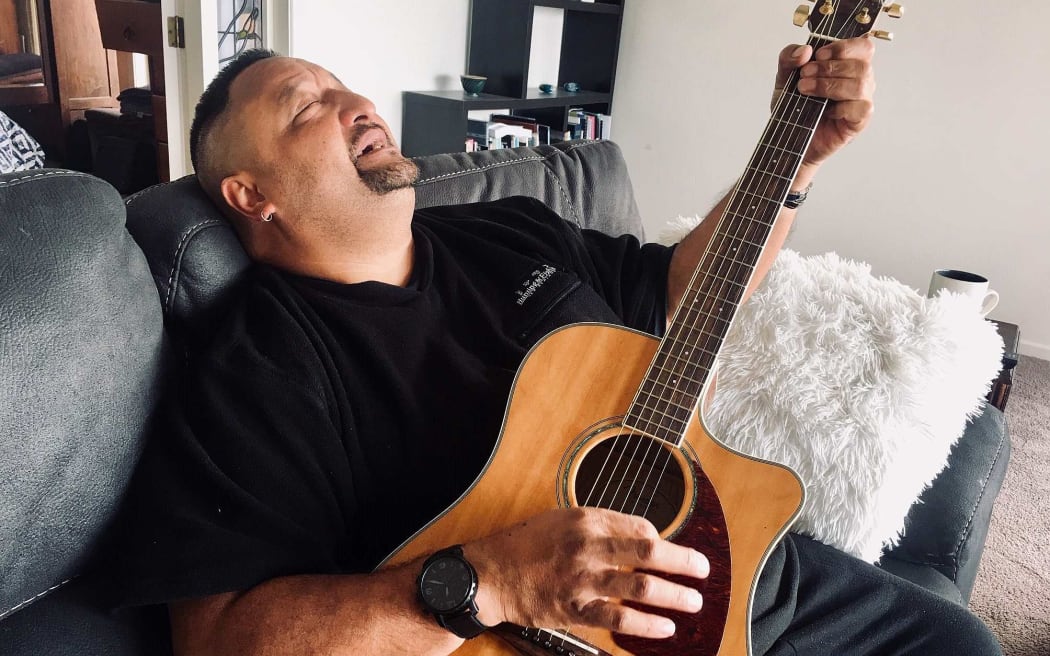
John Hurihanganui was raised through whāngai - a traditional Māori practice, where a child is placed into the care wider whānau. Photo: RNZ / Te Aniwa Hurihanganui
"At that time her brother, Aperahama, already had three girls and one boy and they asked for me to be their whāngai because they wanted another boy and, I imagine, to help out Hoana who was struggling at that time."
Unlike closed stranger adoptions, whāngai children are raised knowing and often maintaining a close-relationship with their birth parents.
And what remains absolutely imperative for whāngai like my dad is that they are connected to whakapapa. "Fortunately for me nēni and koro were very strong in keeping us connected to our whakapapa. Even though we lived in Wellington, we'd come back for all of the tangi, any hui, so often we'd go back to Te Pakira and often to Reporoa in Ōhaaki.”
***
Whāngai was a well-established practice before the large wave of closed adoptions of Māori children. So why did so many Māori parents adopt their children out to Pakeha?
Professor Maria Haenga-Collins says the decision was often made by authorities. "Māori families and grandparents who wanted to adopt related children were often deemed by the courts too old and too poor, and preference was given to Pākehā strangers over Māori kin.
"Children placed in homes as whāngai had actually no legal recognition in New Zealand and there was fear back then that these children could be removed."
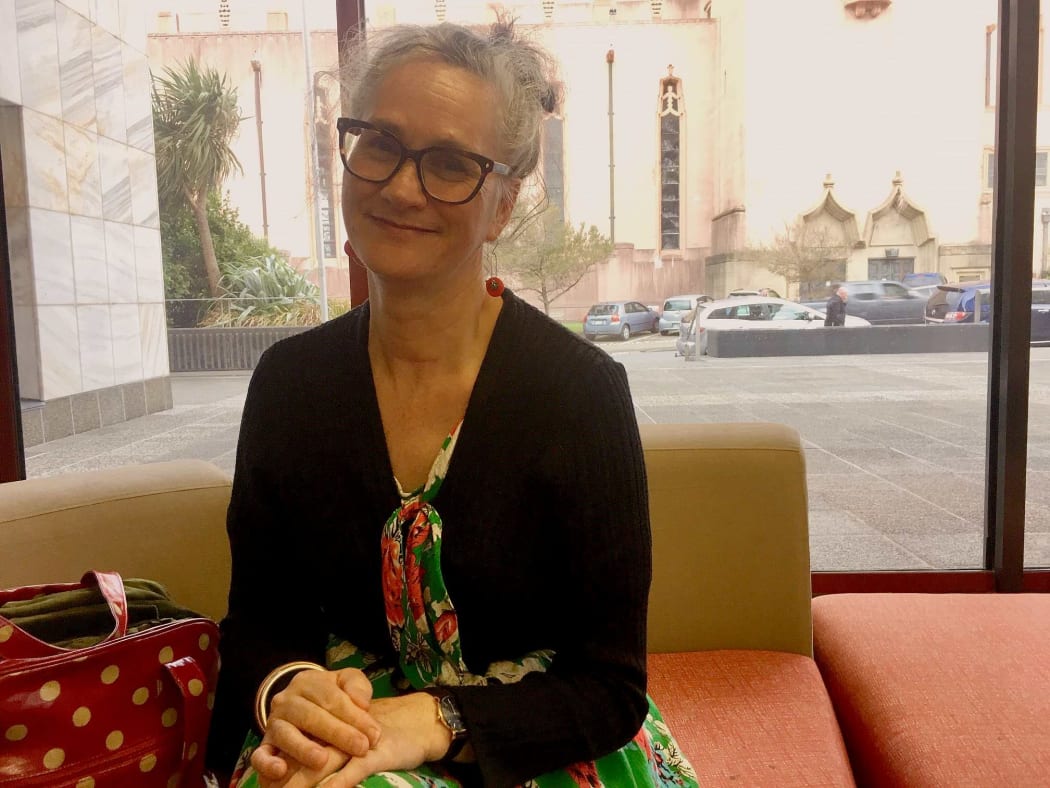
Professor Maria Haenga Collins Photo: RNZ / Te Aniwa Hurihanganui
She says in many other cases, adoption was a way of hiding illegitimate births. It gave childless married couples a chance to become parents and form what was then seen as a “normal” family structure.
It was also thought to give unmarried women, like Annabel Ahuriri-Driscoll’s birth mother Nicola Lancaster, an escape from the stigma and scandal of falling pregnant out of wedlock.
Together again
When the Adult Adoption Information Act came into force in 1985, it allowed adopted people over 20 years old the right to obtain their original birth certificate, unless a veto was put in place by their birth parents.
It would have been of great help to Annabel Ahuriri-Driscoll if she hadn’t managed to find out the name of her birth mother a year earlier via an aunty who had kept it secret.
Together they found her birth mother’s dad, Lester, on the electoral roll, along with a phone number. Lester got hold of Ahuriri Driscoll’s birth mother, Nicola Lancaster, shortly after.
"Nicola rang me back later that night and we talked for probably an hour and a half. Immediately Nicola said to me, 'This is who your dad is, David Ahuriri', and then [we] met probably a couple months later. It was exciting, but lots of unknowns,” she recalls.
"To be honest, when I first met Nicola, I thought there wasn't that 'boom'. It wasn't like you see on Lost and Found or Missing Pieces."
Still, for the first time in her life Ahuriri-Driscoll had access to her whakapapa via David, and a birth whānau she could identify with. "At the time [David] said, 'Dad's Ngāti Porou and Mum's Kahungunu'. I guess I've since learned that there's a bit more to that as well, but that at least meant I could stand up and mihi.
"With Nicola and her sisters, there's something there, the mannerisms and the things we laugh about. It's that feeling of like, yup, these are my whānau. That's probably my experience coming in and being with whānau here. It's so different to how I grew up in a Pākehā family … the manaaki, how you do things, it's definitely different."
Is more change needed?
From the late 1970s and early 1980s the number of adoptions rapidly reduced as it became less difficult for unmarried women to access the pill.
Today adoption is much less common and a lot more open. In the past year the number of children available for adoption in New Zealand was down to about 20.
Open adoptions, which are set out in a contact agreement between the birth parents and the adoptive parents, have allowed most birth parents to stay connected to the child.
But Professor Maria Haenga-Collins says there are still gaps in the adoption legislation that need to be addressed. "There's been open adoption practice, but actually that practice can change and it's all up to the adopted parents. If they decide, actually we're moving, we don't want contact with the birth parents, then they can do that. There's no redress for the birth parents. It's all on the good-will of adoptive parents. It's totally outdated."
Haenga-Collins acknowledges the central role the adoptive parents play in the child's life. She says working with people is always complicated and sometimes it might be necessary to keep birth parents out of the child's life. But she believes in the long term, it is always in the best interest of the child to know their birth parents.
The Ministry for Children, Oranga Tamariki, declined several requests to be interviewed about how adopted people are supported to stay connected to whakapapa. But a year ago, in a written statement, the ministry said when Māori birth parents approach Oranga Tamariki to facilitate an adoption for a Māori infant, the first pool of people they look to are its Māori applicants.
The ministry said where it is not possible to place a Māori child with a Māori whānau, plans for retaining the child's cultural identity form an important part of discussions with the adoptive parents.
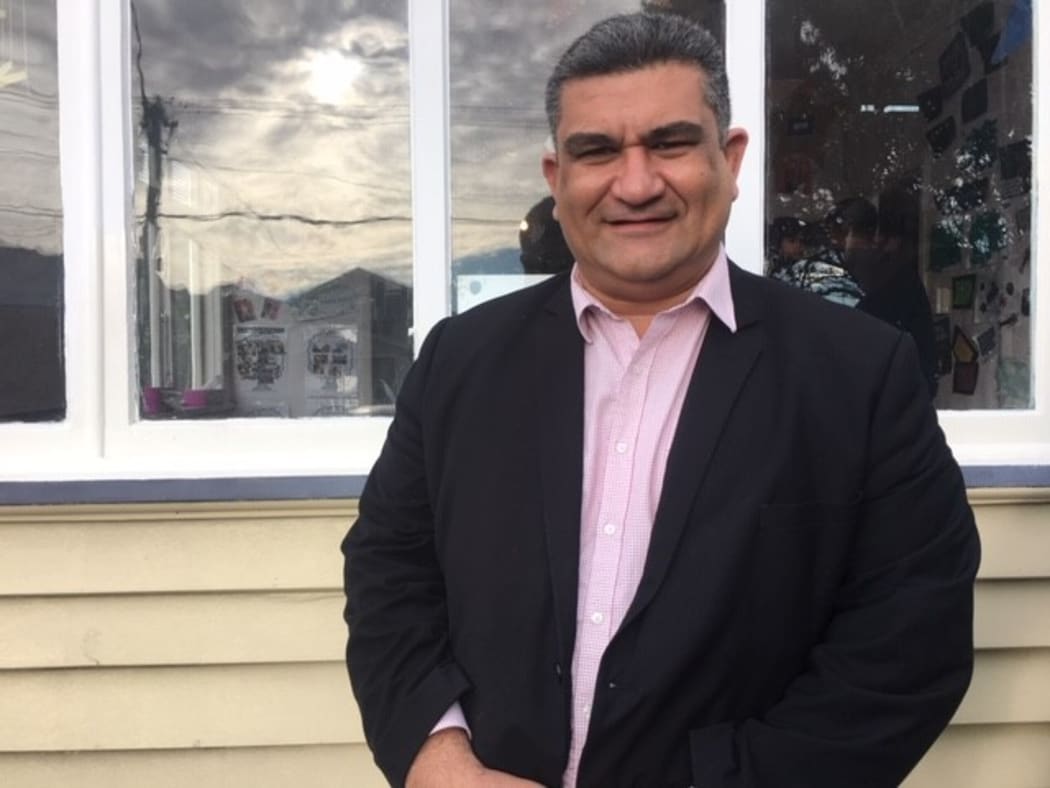
MP Paul Eagle Photo: RNZ / Te Aniwa Hurihanganui
MP Paul Eagle is determined to update the legislation, and ensure all adopted Māori children have access to information about their whakapapa. "Any Māori child, who is subject to the Adoption Act 1955, should immediately know their whakapapa. It should be completely unacceptable that any Māori child is adopted without their whakapapa. They cannot wait until 18.”
